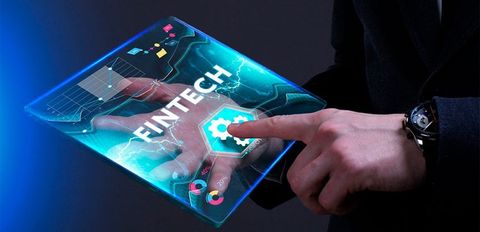The FinTech Forum, held by the US Securities Exchange Commission (SEC) on May 31st, 2019, highlighted two key-notes of technological development – blockchain and distributed ledger technology and cryptocurrencies (e.g. Bitcoin, Ether).
The SEC’s Strategic Hub for Innovation and Financial Technology was the one to host the Forum. FinHub ensures the financial service industry a direct engagement with SEC to provide awareness on the cutting-edge financial technologies via publications, conferences, forums. The FinHub was developed in 2018 to operate as a public platform for business dealings on technology development such as digital marketplace financing, automated investment advice, artificial intelligence, blockchain, crypto and more.
The FinTech Forum 2019 was hosted by SEC for the first time since the foundation of the FinHub. However, in 2016 the SEC held a comparable forum on innovative financial service technologies.
The first three panels addressed subjects of capital formation considerations, trading and markets consideration, and investment management considerations. The 4th panel was aimed at discussing particular trends of industry and examples of blockchain technology application.
All four panels were accompained with SEC leading members’ notes - Chairman Jay Clayton, Commissioner Hester Peirce and Valerie Szczepanik, head of FinHub.
We marked the following key-notes from each panel.
Panel 1: Capital Formation Considerations
- Speakers outlined a new tendency of general security token offerings to prevail over initial coin offerings, taking into account that issuers may choose other assets’ forms used for a distributed ledger.
- Panelists draw attention to the fact that regulatory disclosures on a digital asset and underlying code asset may distinguish. Businessmen willing to proceed the capital-raising activities should be aware of new technology features and be able to validate the underlying code, comparing it to usual disclosures.
- Panelists emphasized an increasing role of digital assets programming in capacitating of a regulatory compliance, namely anti-money laundry rules, know your customer conditions, tax liability calculations, payment flows, transfer restrictions and lock-up periods. In fact, this uprising trend adjusts regulatory compliance to the underlying digital asset code, which reveals a promising potential for “RegTech” according to the experts assessment.
Panel 2: Trading and Markets Considerations
- Speakers assume that blockchain will provide a non-custodial exchange option with opportunity to protect investor’s assets. Exchanging process is vulnerable to cyber-attacks because of investor assets custody, which is needed for matching and operation. The risk of hacks and losses would substantially decrease if blockchain had a non-custodial exchange option and forfeit custody wasn’t required.
- Panelists believe that the digital wallets function should merge into national security exchange and alternative trading systems without a trouble, as they are successfully used at traditional trading platforms.
- Panelists presumed that transfer agents are likely to be displaced from the market by Blockchain and distributed ledger technologies in the future. Yet, the blockchain needs extensive proof that removing transfer agents system will have a positive impact on investor’s understanding of the process before it becomes dominant technology in the security markets.
- Depository Trust & Clearing Corporation (DTCC) members marked that according to their research businessmen often connect retain custody of assets with different cryptocurrencies. Majority of institutional and retail investors still tend to choose a direct custody of digital assets working with a centralized third party, regardless the advantages of decentralized cryptocurrency.
Panel 3: Investment Management Considerations
- SEC’s Division of Investment Management brought attention to the development of cryptocurrency related funds and the digital assets custody. The fund should meet the following standarts to be approved by SEC’s Division of Investment Management: liquidity, valuation, custody, arbitrage clause, changeability of underlying digital asset.
- Panelists noted that despite developing trend to use new classes of digital assets, their general characteristics according to asset allocators would still be the same: valuation, custody and anti-money-laundry regulations.
- Speakers stressed that there is a major conflict between cryptocurrencies digital assets with their anonymity and anti-money-laundry regulations because of mutually exclusive principles. AML and KYC issues may hold businessmen back from investing into digital assets.
- SEC put a great effort in developing comprehensive and adequate rules applicable to all classes of digital assets, giving a protection, and making the clear rules applicable to all classes of digital assets, giving a protection, and making the rules clear and simple to work with. On their opinion, there is no need in regulating the technology. They offer to transform the technology, engaging the control and a custodial security measures.
Panel 4: Distributed Ledger Technology Innovations
- Panelists reviewed the various experimental forms in current distributed ledger technology, noting that it is hard to predict which system will be top-requested in the future. They assume that within the five years there will be no distinction between public and permissioned blockchains and all the types of disturbed ledger technology will be launched without prior permission.
- Speakers pointed that distributed ledger technology can be used for innovative securities arbitration to create so called “smart contracts”, which will allow arbitrator to resolve disputes in real-time mode via private key.


















